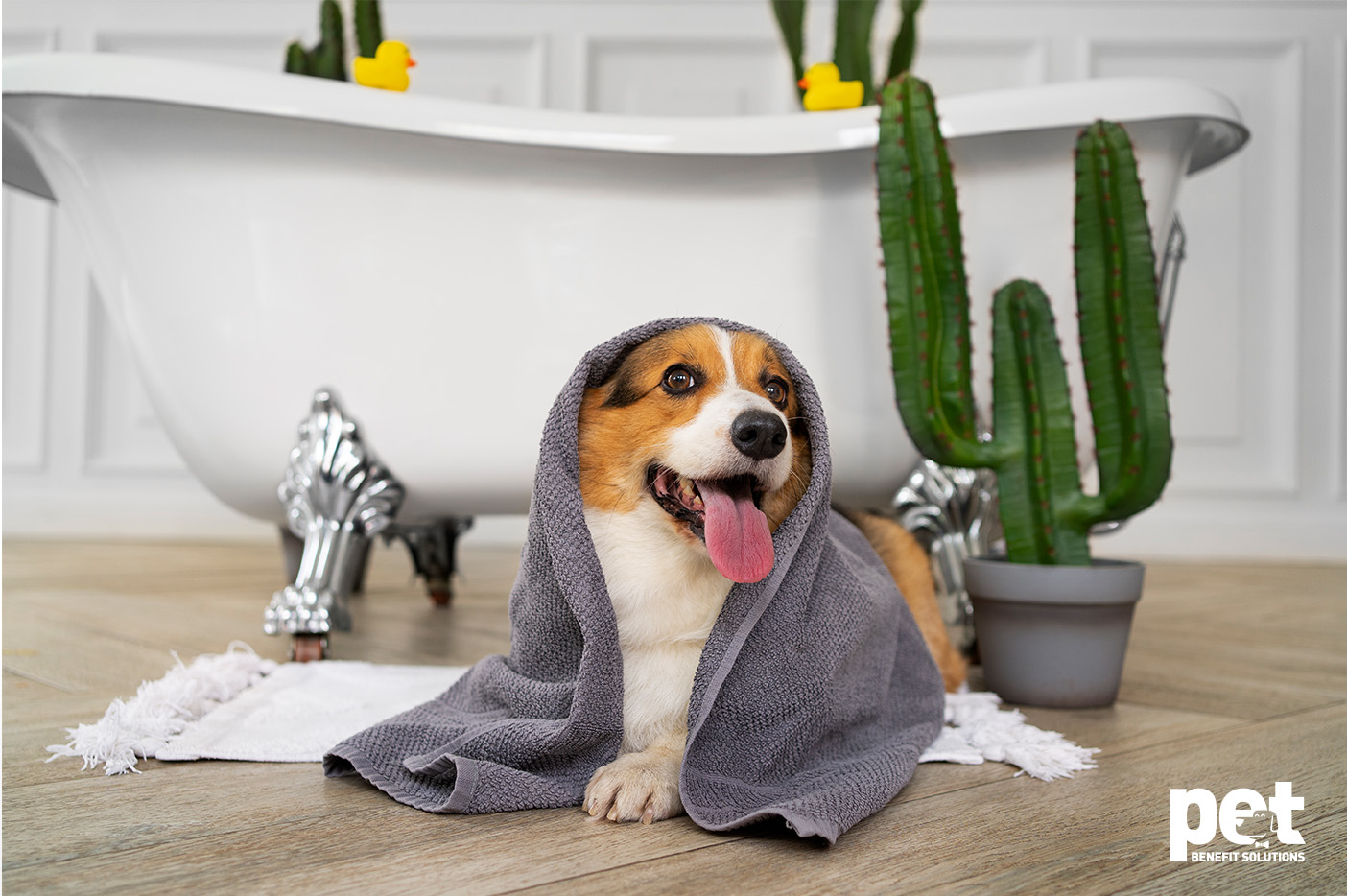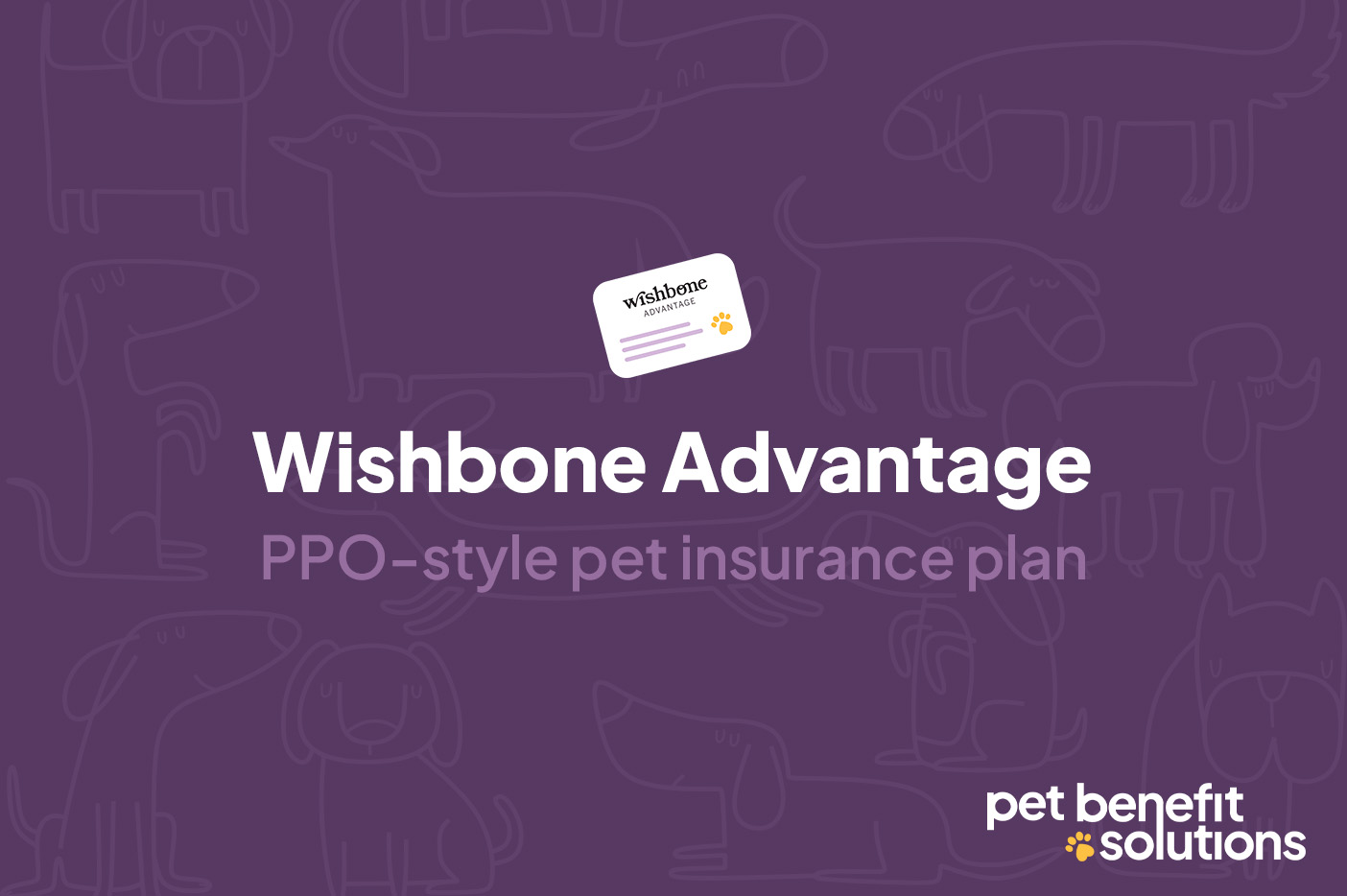
2023 Pet Health and Wellness Trends
Pet parents have taken the leap from preventatives to probiotics and vaccinations to vitamin drinks. How can your pet benefits keep up with employee expectations?
2023 Pet Health and Wellness Trends
Once upon a time, you worried about your employees’ “health and wellness.”
Anxiety was a people’s malady.
And Ralph Lauren only designed clothes for humans.
But, no more. Today, gold-standard employee benefits cover employees’ families, too. And pets are full-fledged family members, cared for to the same standard as their parents.
Yes, Ralph Lauren really has a high-end pet clothing line, as do Louis Vuitton and Coach. But more to the point for the voluntary benefits community, pet wellness now goes way beyond annual wellness exams, immunizations, and preventatives. Those are still crucial, of course, but modern pet parents take a holistic approach to their pets’ physical and emotional well-being.
The shift is driven by both the pet parents and the market. Millennials, dubbed the “wellness generation,” are the largest U.S. pet owner demographic. Together with Gen Zers, they apply that mindset to their pets. On the other side, savvy investors fuel the trends with targeted new products and services.
With open enrollment upon us, it’s crucial to know what your pet parent employees really want this year.
Functional Pet Health
Good health starts with the basics. Pet parents want products to keep their pets in all-around peak condition:
- Healthy skin and shiny coat
- Smooth digestion
- Weight management
- Strong bones and pain-free joints
- Protective immune system
- Ideal dental health, including sparkling teeth, gums, enamel, and breath.
Pet parents purchase probiotics, postbiotics, herbs, supplements, and even vitamin drinks to achieve and maintain these goals. Digestive health is a particular concern since dogs are prone to gas, bloating, constipation, and diarrhea. This is why ADM reports that 6 out of ten pet parents want their pet’s foods and treats to have digestive health benefits.
27% of pet supplement shoppers looked for information about their pet’s microbiome.
- (adm.com)
There’s a strong movement away from processed kibble. Kibble is fast food for dogs—convenient but not very healthy. Its fillers, such as corn or soy, aren’t native to a dog’s diet. Its high starch content can contribute to obesity. Many pet parents are switching to fresh or raw pet foods. They’re easier to digest, offer more nutrition, and cause fewer allergies.
Emotional Support
Pets’ mental health is just as important as their physical health. That should come as no surprise. Gen Zers are the up-and-coming pet parents, for whom mental health is a top issue.
Just like humans, pets can suffer from anxiety or depression. Pet psychologists and licensed animal behaviorists offer professional assistance for these and other issues. There are also countless anxiety and calming pet supplements on the market. Rather than use pharmaceuticals, most are made from natural ingredients, such as melatonin, CBD, and chamomile.
33% of U.S. pet owners would like to see calming and anxiety relief benefits in pet food and treats.
- Mintel, America’s Pet Owners Market Report 2021
Pet parents also care for their pets’ mental health with socializing and interactive toys. Puzzle toys and one-on-one play help animals stay cognitively alert. They also help prevent boredom-induced destructive behaviors.
Pampering
Millennials and Gen Zers consider their pets their children and spoil them accordingly. Despite inflation, pet spending is increasing! Fortune Business Insights expects the pet care market to grow at a 5.92% CAGR through 2030.
Pet parents buy their fur babies treats and toys. Plus, pets, like people, always need to be picture-perfect for their next social media moment. Grooming parlors now offer mani-pedis, massages, and other indulgences. Pet skincare is a big business, exploding with countless shampoos, balms, lotions, and wipes.
81% of millennials admit they love their pet more than certain family members.
- ConsumerAffairs.com
On a more serious note, pet parents spare no effort to find products that address their pet’s unique needs. FMCG Gurus found that 30% of pet owners research the best-suited products for their pets’ allergies, weight management, or other health conditions. They consult their veterinarians for customized pet health and nutrition plans.
Environmentally Conscious Pet Products
Just as they do for themselves, today’s consumers choose pet products that align with their values. Sustainability is a top concern, as are “all-natural,” “non-GMO,” or “organic.”
- 8% of cat owners and 40% of dog owners want brands that adopt sustainable initiatives. (FMCG Gurus)
- 50% of pet parents will pay more for eco-friendly pet care products. (Yahoo!Finance)
- In 2020, the global natural pet food market was worth $22.8 billion. (businesswire.com)
Those products cost more, of course, but millennials and Gen Zers are happy to vote with their wallets.
“Better for You” Pet Benefits
Bringing the conversation back to pet benefits, what do you do when pet health now encompasses a broad spectrum of products and services? Offering coverage for vet bills, vaccines, and emergency room visits with traditional pet health insurance is a necessary start. But how can you be fully responsive to the needs of your pet parents?
A pet care bundle may be the answer. Total Pet Plan, for example, gives wide-ranging health and wellness benefits. It offers members free shipping and up to 40% off on:
- Preventatives
- Prescriptions
- Toys
- Treats
- Food
And that’s in addition to:
- Instant 25% discounts on in-house medical services at participating veterinarians
- Unlimited assistance via a 24/7 pet telehealth service
- Lost pet recovery service to help bring missing pets home
Do your pet benefits achieve maximum ROI in employee satisfaction? It’s time for pet benefits to catch up with today’s trends.



